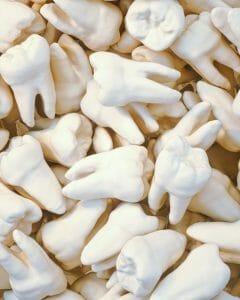Introduction
Approximately 5 million Americans undergo wisdom teeth extraction annually. Despite its common occurrence, many of us are plagued with uncertainties and fears surrounding this procedure. The aim of this article is to provide a comprehensive guide on everything you need to know about wisdom teeth removal. This essential information could help alleviate your anxieties and prepare you adequately for this commonplace dental surgery.
Understanding Wisdom Teeth
Wisdom teeth, or third molars, are the final set of teeth to erupt in the mouth, typically surfacing between the ages of 17 and 25. While they were once essential for our ancestors to chew coarse food, they are now often considered vestigial organs, largely unnecessary in our modern diet.
The Need for Extraction
Wisdom teeth can often cause complications due to their position in the mouth. Some people may not have enough room in their jaw for these molars, causing impaction – a condition where the tooth is trapped beneath the gum. Impacted wisdom teeth can cause severe pain, infection, tooth decay, gum disease, or even damage adjacent teeth. Even when not impacted, wisdom teeth can be difficult to clean due to their location, making them a hotspot for bacteria and decay.
The Evaluation Process
Dentists use X-rays to evaluate the position of your wisdom teeth and determine if they are likely to cause future problems. The dentist will assess their angle of growth, level of impaction, and proximity to vital nerves and structures. This evaluation is necessary for creating a personalized extraction plan.
The Extraction Procedure
The procedure of wisdom teeth removal varies based on the complexity of the case. It typically involves the use of local, sedation, or general anesthesia, ensuring that the patient feels no pain during the procedure. After numbing the area, the oral surgeon or dentist will make an incision in the gum to expose the tooth and bone. They will then remove any bone blocking access to the tooth root, before dividing the tooth into sections to make it easier to remove. After the tooth is extracted, the area is cleaned of debris, and the wound is stitched shut to promote healing.
Recovery and Aftercare
After the procedure, you’ll need time to recover. The initial healing period generally lasts 1-2 weeks. During this time, it’s essential to rest, hydrate, and follow a soft-food diet. Some swelling, pain, and bruising are normal after surgery; however, these symptoms can be managed with prescribed medications and home remedies such as ice packs. Proper oral hygiene is crucial during recovery to prevent infection.
Potential Risks and Complications
Like any surgical procedure, wisdom tooth removal comes with potential risks and complications, albeit infrequently. These include dry socket, infection, damage to nearby teeth or nerves, and prolonged numbness or altered sensation in the lower lip, tongue, or chin. It’s crucial to discuss these possibilities with your oral healthcare provider and understand how to identify signs of complications early on.
Wisdom Teeth Removal in Adolescence
Removal of wisdom teeth during adolescence, before they are fully formed, can make the procedure easier and recovery faster due to the roots being less developed. It can also help prevent future oral health issues. However, each case is unique, and the timing of extraction should be discussed with a dental professional.
Conclusion
Understanding the ins and outs of wisdom teeth removal can help you make informed decisions and prepare for a smoother, worry-free experience. Remember, communication with your dentist is vital. Discuss any concerns or questions you have about the procedure, aftercare, and recovery. Keep in mind that while the process may seem daunting, wisdom teeth removal is a standard procedure performed to ensure the overall health and well-being of millions each year. Remember, ‘knowledge is wisdom’, especially when it comes to your dental health!
